by Michael Deering
Throughout the pandemic, I’ve had the opportunity to speak with individuals all around Queens College about their experiences working through the pandemic. I recently spoke with Julia del Palacio, of QC’s Kupferberg Center for the Arts. It was interesting to hear about the Center’s transition to virtual events, and to hear about Julia’s personal transition to remote work.
MD: Hi Julia, thank you for doing this! To start out, what is your title and how long have you worked at Kupferberg Center for the Arts?
JD: It’s my pleasure! My title is Director of Strategic Partnership and Development, and I’ve been at Kupferberg Center for six years.
MD: Before COVID, what was your average workday or workweek like?
JD: I would leave home at around 8:15 with coffee in hand, make it into the office at around 9, and check in with Kupferberg Center’s Executive Director and AVP of Governmental and External Affairs for the College, Jeff Rosenstock. We would chat about the day, approaching deadlines, the news, and anything else related to what we do. The morning would go quickly and then I’d have lunch with my colleagues Liza and Maria, or at my desk. I’d attend meetings in Colden Auditorium, the Student Union, Rosenthal Library, or the Godwin-Ternbach Museum. I would move around the campus quite a bit, actually. That went on until 5 and then I’d either stay for an on-campus event or go home.
MD: How has this changed as a result of the pandemic? What does a typical remote work day look like for you?
JD: These days I check in with Jeff from my desk at home, drink my coffee there. I usually also have my lunch at the desk as well as all my meetings. I’m not moving around as much or seeing as many people. It’s a little sad, come to think of it.
MD: I’m glad you reached out about Kupferberg’s virtual programs as they are a perfect fit for our Culture Watch blog posts about virtual cultural events. Was Kupferberg streaming events before the pandemic? How did these programs come into being?
JD: Kupferberg Center was not streaming virtually before the pandemic. We present a large variety of events both on and off campus, so we never saw the need to stream, since we were already reaching a large and diverse audience, and let’s face it, people weren’t watching whole concerts online as much. Once it became clear that we wouldn’t be able to open our theaters for many months, we started putting our online programming together. It took a little while, but we are now very much up and running. We presented a widely successful summer concert series and are now excited for our fall season, which started with the kick-off concert for our Music Makers: An Alumni Concert Series, featuring graduates from the Aaron Copland School of Music. Going forward, we will have visual arts, literature, family programming, and theater events most weeks.
MD: It’s great that Kupferberg is using resources from Queens College for a lot of these programs. The Godwin-Ternbach Museum and alumni from the Aaron Copland School of Music for example. How do you go about selecting artists to present these programs?
JD: We have incredible talent and resources on our campus, for sure. The Godwin-Ternbach Museum is directed by Maria Pio and Louise Weinberg, who do all the curatorial and programming work. Since the Museum is part of the Kupferberg Center umbrella, we’re happy to be co-presenting their new exhibition, “Human Nature: Portraits from the Permanent Collection” and some of the programming that will accompany it. Maria, Louise, and President Wu will actually be chatting about the exhibition online via Kupferberg Center’s social media on September 29 at 7pm. In terms of the alumni series, a lot of the work was done via recommendations from other graduates and ACSM’s faculty. We’re excited to have chosen a diverse roster that features alums Sofia Tosello, Jan Kus, Alex Conde, and Alberto Jimenez with their respective ensembles.
MD: Beyond entertainment, are there any messages or goals that the Kupferberg Center is hoping to share with its audiences through programming?
JD: We hope that the programming that we’re offering gives audiences a much-needed respite from the constant flow of (not-so-good) news and the daily grind of home offices and distant learning. Our message is one of collaboration, diversity, and celebration of our Queens community and the myriad cultures that come together in our borough and New York City.
MD: I want to thank you again for reaching out and for taking the time to speak with me! For my last question: Do you have any favorite virtual events that either already occurred or is upcoming?
JD: All of our events have been and will be fantastic! If you twist my arm, however, I’d highly recommend Nixtaband and Claudia Valentina from our summer concerts (which can be watched on our YouTube channel), and the Alex Conde flamenco piano concert of November 17. We will have programming pretty much every single week, so check out our calendar at www.kupferbergcenter.org and join us!
